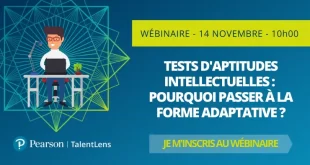In the practice of Adaptive Testing, we are faced with a series of challenges that require deep thinking and effective responses at multiple levels, including technology, design and implementation. Here is a professional look at these challenges.
- Technical challenges
Algorithm optimization: The core of adaptive testing is its ability to dynamically adjust the difficulty of the test according to the performance of the test taker. However, how to design a fair and efficient algorithm to ensure the accuracy of the test is a huge challenge. Algorithms need to be able to accurately assess a candidate’s ability level without unfairly affecting the candidate by asking questions that are too difficult or too small.
Question bank management: A large, high-quality question bank is the basis of adaptability testing. However, how to maintain and manage such a question bank to ensure the quality, diversity and timeliness of the questions is another technical challenge. In addition, with the emergence of new knowledge and the elimination of old knowledge, the question bank also needs to be constantly updated and optimized.
System stability: The stability of the system is crucial during the examination process. Any kind of system crash or failure may cause unnecessary distress to candidates and even affect the fairness of the exam. Therefore, how to ensure the stability and reliability of the system is the technical challenge that adaptability testing must face.
- Design challenges
Test design: The design of adaptive testing needs to take into account several factors, including test purpose, target group, test duration, question type and difficulty. How to properly design these factors to ensure the validity and fairness of the test is a design challenge. In addition, it is necessary to provide a personalized test experience that takes into account the needs and differences of different candidates.
Feedback mechanism: An important feature of adaptive testing is the ability to provide immediate feedback. However, it is a design challenge to design feedback mechanisms that both accurately reflect the ability level of candidates and motivate candidates to continue to learn and improve. In addition, it is also necessary to consider the impact of timeliness and accuracy of feedback on candidates’ psychology.
- Implementation challenges
Invigilation management: Compared with traditional exams, adaptive tests face greater challenges in invigilation management. Since the difficulty and type of questions may need to be adjusted frequently during the examination process, more stringent invigilation measures are needed to ensure the fairness and impartiality of the examination. In addition, it is necessary to take into account the possible cheating problems in online exams and take effective measures to prevent them.
Data analysis: Adaptive testing generates a large amount of data, including candidates’ answer records, grade distribution, ability level, etc. How to effectively use these data for analysis and evaluation to guide subsequent teaching and testing efforts is an implementation challenge. In addition, the security and privacy of the data need to be taken into account.
Training and promotion: Adaptive testing, as a new testing method, needs to be widely recognized and supported. Therefore, how to effectively train teachers and candidates to understand the principles, features and advantages of adaptive testing, and how to correctly use it for teaching and testing is an implementation challenge. At the same time, it is also necessary to promote and publicize through various channels to improve the visibility and influence of adaptability testing.
To sum up, adaptive testing is challenging on multiple levels. We need to continue to explore and innovate to overcome these challenges and improve the effectiveness, fairness and usefulness of adaptive testing.
